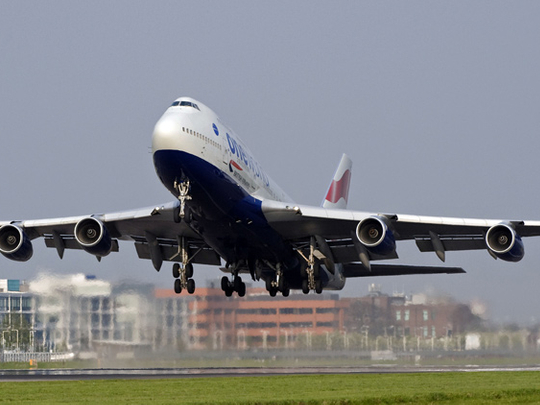
Dubai: The higher user charges imposed by the operator of Heathrow Airport could raise airfare tickets to the UK and create competition with the Dubai airport.
Colin Mathew, Heathrow Airport CEO, was quoted in the Financial Times as saying that the decision to raise user charges for airlines using the airport is a necessary step to enhance Heathrow’s competitive hub status, especially so with the expanding passenger hubs in the Middle East and Europe.
On average, an airline’s user charges account for around 20 per cent of ticket fare, David Kaminiski-Morrow, Air Transport Editor at the online magazine Flightglobal.com, told Gulf News in a telephone interview, citing a CPC study.
In response to Heathrow’s decision, Emirates Airlines said in a statement that they are “aware of the proposals and continue to monitor the situation, as it does with the competitiveness of charges and fees at all airports across its network.”
Heathrow Airport Holdings said the inflow of fresh capital from user charges will fund future airport improvements. The operator has called for a Dh17.3 billion (£3 billion) investment programme, which will run over five years starting next year. The increased user charges address the shortfall in tariff revenues in the last 10 years, which were primarily due to the drop in passenger numbers. The shrinking numbers meant the airport’s investment returns had not met the cost of capital over the last 10 years. The new investment programme hopes to correct that.
Responding to fare hike
Ways by which airlines can respond to the higher user charges include increasing fares, passengers and cutting down on costs, according to Kaminiski-Morrow. However, he added, there is a “fine line between raising competitive fare prices and giving passengers a reason to pay the higher fares.”
Airlines may not feel that they would benefit from the larger user charges because the upgrades may simply go to terminals they’re not using, Kaminiski-Morrow said. He added, “If there are long-term benefits, they might not come up until many years down the line, given the length of time for the developments.”
— The writer is a trainee at Gulf News.








